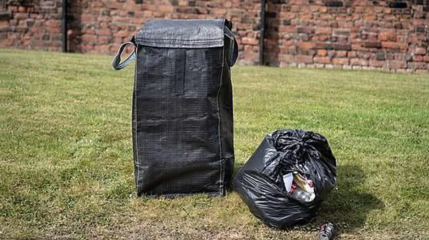
How to stop house pipes from freezing
 Marie, Maintenance Manager at CPS Homes, discusses why frozen pipes burst, how you can tell pipes are frozen, and what homeowners and landlords can do to minimise the risk of burst frozen pipes...
Marie, Maintenance Manager at CPS Homes, discusses why frozen pipes burst, how you can tell pipes are frozen, and what homeowners and landlords can do to minimise the risk of burst frozen pipes...
Estimated reading time: 4 minutes
Frosty winter temperatures put your house pipes at risk of freezing over, potentially resulting in thousands of pounds worth of damage to your property.
If you own the home you live in, you may already be aware of the risk, but properties that are particularly at risk of suffering from frozen pipes in the winter are unoccupied properties and rental properties with tenants who aren’t aware of the risks.
Fortunately, there are measures that you or your tenants can take to protect house pipes from freezing or bursting, but first let’s learn why frozen pipes burst and how you can tell that they are frozen to begin with.
What makes a frozen pipe burst?
In the winter the temperatures can easily drop below zero, especially throughout the night into the early morning hours. If temperatures become too cold, the water in house pipes can freeze over and then burst as it warms back up. Not a nice problem to face!
Burst pipes then leads to flooding and likely water damage to your property, which can prove extremely costly to rectify.
Pipes that are exposed to the cold winter temperatures are most at risk of freezing over, such as exterior house pipes, taps in gardens, pipework around cold garages etc.
Read: Interior winter maintenance tips for homeowners and landlords
How can you tell if your house pipes are frozen?
If temperatures have been cold lately and water trickles from a tap, or doesn’t trickle at all, there is a very good chance that your pipes have frozen - provided you’ve first checked that your stop tap isn’t preventing the water from running!
If you suspect you have frozen pipes, you’ll want to try to identify exactly where they are likely to be frozen. This tends to be where the pipe is most exposed to the cold.
Once the likely frozen area of the pipe is identified, the Met Office recommends that homeowners thaw frozen pipes out slowly with hot water bottles or towels soaked in hot water, all while cold taps are turned on to relieve pressure on the frozen pipe and help it to thaw out quicker.
You should never use a naked flame or blowtorch to thaw the frozen pipe as this can cause permanent damage to the pipes or cause them to explode if the ice is heated too quickly, not to mention it would be a serious fire hazard.
How can you stop house pipes from freezing?
There are a few different things that you or your tenants can do to protect your house pipes from freezing. The things you can do to safeguard your pipes in the winter will depend on the pipework layout of the property. Be sure to pass this information onto any tenants so that they are aware of the measures they can take as they would also suffer from frozen or burst pipes, even if not financially.
Thoroughly drain exterior pipes where possible
If the property has an outdoor water supply such as a tap in the garden or attached to the exterior wall of the house, there is likely to be a stop valve on the inside of the property. Opening the tap on the outside and closing the valve on the inside so that you can thoroughly drain the pipe will ensure there is no water remaining inside the pipe that can freeze.
Utilise the heating system to keep pipes warm
Setting the heating to not drop below approx. 12 degrees Celsius can ensure that the temperature of the pipes never drops low enough to freeze over. If you’re leaving the property vacant for a while, or if you have a rental property that’s going through a void period, it can be very tempting to turn the heating down or off to save on energy costs. Understand that the cost to fix burst frozen pipes can cost far more!
Read: How to keep your property warm during winter
Insulate exterior pipes and sprinkler systems
Some homes have a garden sprinkler system. If this is the case, be sure to completely drain the system and insulate any pipes that may be prone to damage. Appropriate pipe insultation can be purchased from most DIY stores.
Are you looking for assistance in the property market? Whether you’re buying, selling, letting or renting, our sales and lettings team here at CPS Homes have the experience and expertise to help you every step of the way. To discuss your situation in more detail, don’t hesitate to contact us by calling 02920 668585, e-mailing enquiries@cpshomes.co.uk or by popping into one of our three Cardiff branches.
The information contained within this article was correct at the date of publishing and is not guaranteed to remain correct in the present day.


